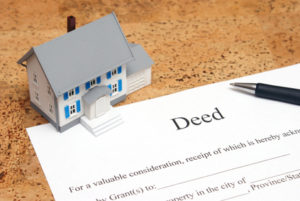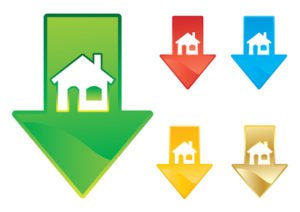Just Moved In? Tips for Meeting the Neighbors (Without Coming Off Creepy…)
1. Sit on the Front Porch
Sitting on the front porch or gardening in the front lawn can open the opportunity to have discussions with your neighbors that aren’t forced. A simple wave and friendly smile can go a long ways. Don’t hide, get out there! Your neighbors who will be walking their dogs, picking up their kids from school or just taking a stroll will be happy to see new neighbors in clear view when they first move in. Everyone is always curious about new neighbors and putting yourself out there can avoid nosy ones later – the ones who are wondering, “Just what are they up to?”
2. Go to the Block Party
Neighbors having a shindig down the street? Grab an appetizer or beers and head over! It’s pretty much guaranteed that there will be more people just like you, feeling a little awkward, yet wanting to get in good with the neighbors. Bring a yummy treat and you can’t really go wrong. Warning: Do not get drunk and do something stupid, unless you want to regret it later. Remember, this is your first impression, and they are important. We recommend going a little after the party has started, or right when it has first begun, and leaving well before its over. Make your presence known, stay awhile, but not too long. It’s good to leave them just a taste and not overstay your welcome unless you want to have VERY close relationships with your neighbors, get involved with gossip or somehow get dragged into some neighborhood committee (unless you want to of course!).
3. Join NextDoor.com
Another “new-fangled” way to get in touch with your neighbors is to join the social community NextDoor.com. It is similar to Craigslist in that people announce sales, ask for referrals, post government information and events, but it loses the creepy-factor because you can only join if you actually live in the neighborhood. To sign-up, go to NextDoor.com and fill out the application form. After that, they will mail a postcard to your home with a special code on it. Once received, follow the instructions and enter your code on the site. Once verified, you will get access to all neighborhood goings on such as playdates and happenings. You can adjust the frequency and type of notifications you get in the account settings section.
4. Walk the Dog
Similarly to hanging out on the front porch, walking your dog is a fantastic way to meet your neighbors. In fact, your dog might try to meet them before you, running up to them with a big wet kiss or happy tail wag. Usually, most people are happy to see dogs, but make sure to hold their leash tight until giving the okay. People do not like their space invaded and want to be sure your dog is nice first before petting. This can open up such questions as, “What breed is your pup? How old is she? Have you just moved in?”, etc. If they have dogs too, and you hit it off, offer to go on your next stroll together and pick a time and day. Voila! Friend made. If you find out on your walk that they are not your cup of tea, let them know at the end of the walk that you enjoyed their time, but you are sad because given your schedule of just moving in, it’s likely that most of your time will be taken up with work/school/mother-in-law visiting/household projects/etc. Then, always give them a smile and a wave when you see them next.
5. Bring Over a Basket of Goodies, Flowers or Just Leave a Note
This one’s a classic. Everybody loves gifts and cards. These days, baked goods or homemade snacks may be looked at with suspicion or not eaten if you are still considered a “stranger”, so it’s best to go with wrapped items if you go that route. Flower baskets left on a door with a note are a fantastic way to say hello. Plus, if you are an introvert, this way offers you an avenue to say hello without actually saying hello. Next time you talk, all they have to usually say is “thank you” and all you usually have to say is “of course!” and tell them a bit about where you came from, what you do and what your family is all about (kids ages, etc.). A note can have the same effect if written with kindness, although flowers or a gift add a special touch.
6. Look for a Meetup Group
Another way to find neighbors with similar interests is to look for Meetup groups that suit your fancy. Love crafting? Have small kids? Love hiking? There is a Meetup group for almost every hobby. Simply look on the website, join, mark your calendar, and go! Not every group is the perfect fit for you, so it might be good to tell the host that you are new in town and trying out lots of things so that they don’t pressure you to be exclusive, giving you more time to check it all out. And, if you love it, well, you just found a weekly or monthly activity and a whole bunch of new friends.
7. Hold a Yard Sale
You might have thought you needed every single thing you packed for your move, but upon unpacking, you might discover that not everything fits perfectly or that you just have too much. Holding a yard sale can invite the neighbors to you and maybe even make you a little cash.
8. Start a Free Little Library
Free Little Libraries are always a magnet for good will. If you check out their website, you can learn all about how to build and get your free little library officially commissioned. They are adorable and neighbors can participate by lending and loaning books. Include titles that are non-controversial to start and include some kids books of all ages. You will immediately get a good impression (so long as the one you build is classy and keeps with the neighborhood vibe) and neighbors will appreciate that you are open to sharing with them in a literary way.
9. Go to a Town Hall Meeting
You can find out about town hall meetings from the newspaper, online and in forums like NextDoor.com. Attending meetings about current events affecting your neighborhood allows you to get an inside peek into the happenings around you. And, it allows you to be introduced to your neighborhood “movers and shakers.” If you lean toward politics and getting involved, this can be a great way to break into an influential group of neighbors.
10. Visit Your Local Shops and Tell the Cashiers That You Just Moved In
Shop owners, bartenders and baristas meet and talk to lots of people during their day. Through this interaction, they are privy to current events, people and tips on the best spots to visit in town. Be friendly and tell them you are new in town. Next thing you know, you will likely be pointed in the direction of something awesome to check out.
Alright…now that you’ve gotten your tips, it’s ready set go time. See which ones work for you and if there’s one we missed, feel free to send us your idea right here.































